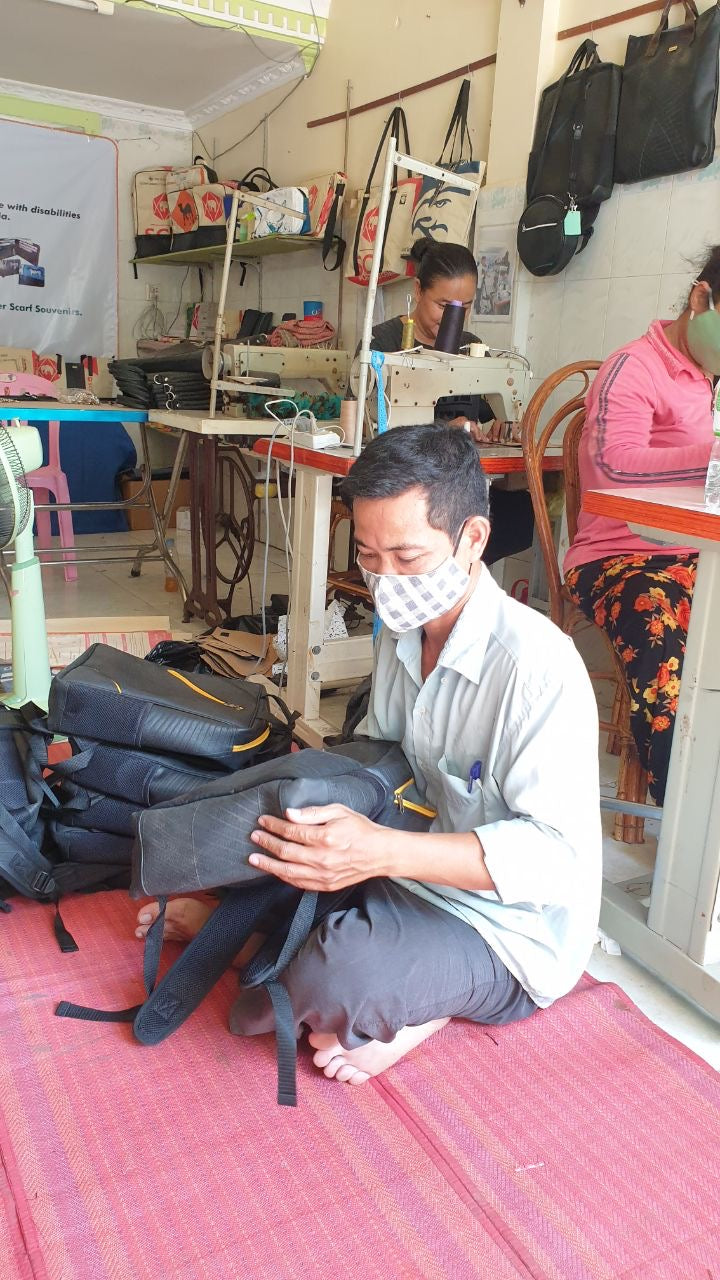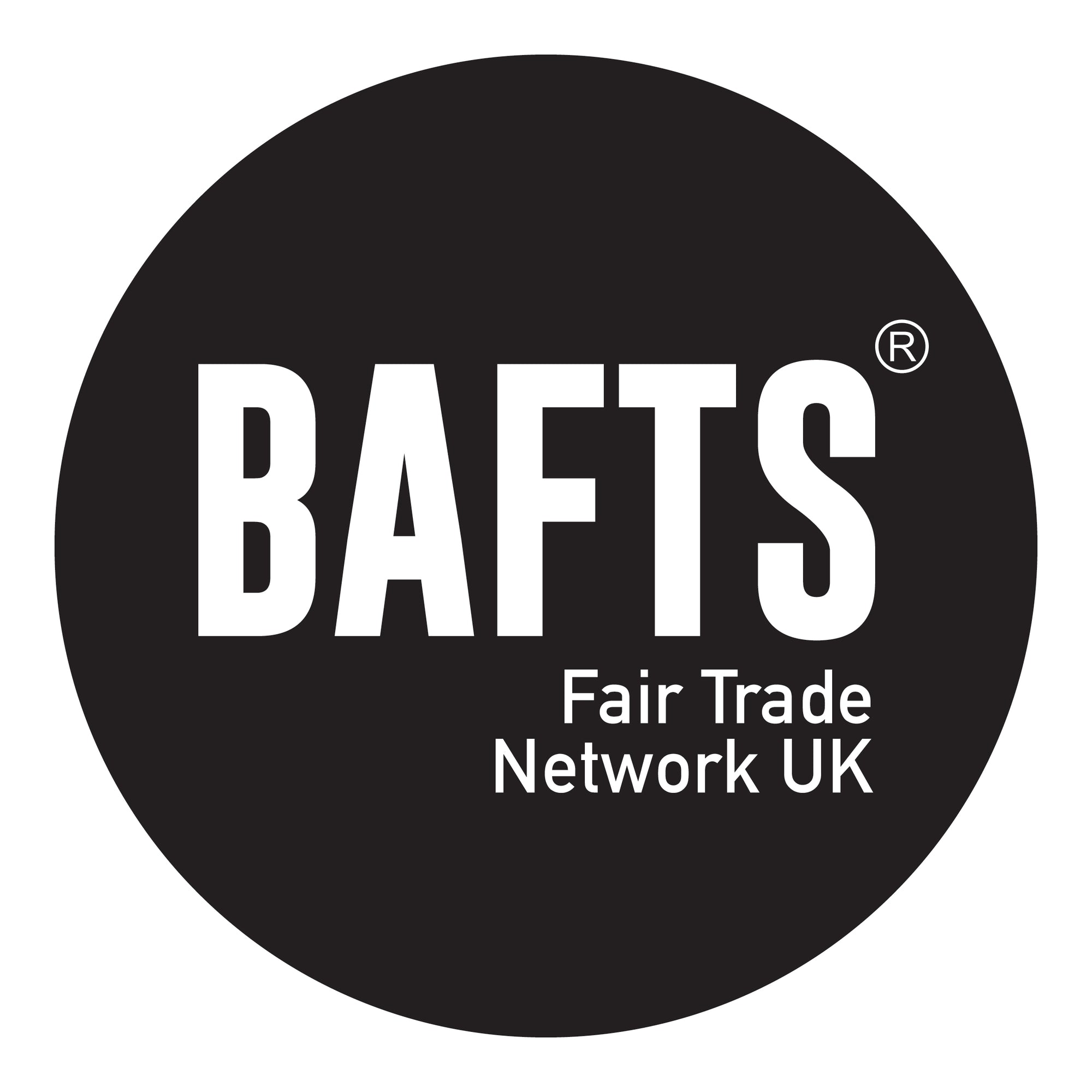10 PRINCIPLES OF FAIR TRADE

At Lost in Samsara, we’re proud members of Social Enterprise UK and BAFTS - Fair Trade Network UK, committed to building a fairer, more sustainable world through trade.
We follow the 10 Principles of Fair Trade because we believe in trade that empowers people — with fair wages, safe working conditions, equal opportunities, and a focus on protecting the planet. Our products are made in collaboration with artisans and crafted from recycled materials, helping reduce waste and create lasting change.
Together, we can make a difference.
Choose Fair Trade and be part of the movement for justice and sustainability.
PRINCIPLE ONE: CREATING OPPORTUNITIES FOR ECONOMICALLY MARGINALISED PRODUCERS
Poverty reduction through trade forms a key part of the organisation’s aims. The organisation supports marginalised small producers, whether these are independent family businesses, or grouped in associations or co-operatives. It seeks to enable them to move from income insecurity and poverty to economic self-sufficiency and ownership.
PRINCIPLE TWO: TRANSPARENCY AND ACCOUNTABILITY
The organisation is transparent in its management and commercial relations. It is accountable to all its stakeholders and respects the sensitivity and confidentiality of commercial information supplied. The organisation finds appropriate, participatory ways to involve employees, members and producers in its decision-making processes. It ensures that relevant information is provided to all its trading partners.
PRINCIPLE THREE: FAIR TRADING PRACTICES
The organisation trades with concern for the social, economic and environmental well-being of marginalised small producers and does not maximise profit at their expense. It is responsible and professional in meeting its commitments in a timely manner. Suppliers respect contracts and deliver products on time and to the desired quality and specifications.
PRINCIPLE FOUR: FAIR PAYMENT
A fair payment is one that has been mutually negotiated and agreed by all through on-going dialogue and participation, which provides fair pay to the producers and can also be sustained by the market, taking into account the principle of equal pay for equal work by women and men. The aim is always the payment of a Local Living Wage. Fair Payment is made up of Fair Prices, Fair Wages and Local Living Wages.
PRINCIPLE FIVE: ENSURING NO CHILD LABOUR AND FORCED LABOUR
The organisation adheres to the UN Convention on the Rights of the Child, and national / local law on the employment of children. The organisation ensures that there is no forced labour in its workforce and / or members or homeworkers.
PRINCIPLE SIX: COMMITMENT TO NON DISCRIMINATION, GENDER EQUITY AND WOMEN’S ECONOMIC EMPOWERMENT, AND FREEDOM OF ASSOCIATION
The organisation does not discriminate in hiring, remuneration, access to training, promotion, termination or retirement based on race, caste, national origin, religion, disability, gender, sexual orientation, union membership, political affiliation, HIV/AIDS status or age.
PRINCIPLE SEVEN: ENSURING GOOD WORKING CONDITIONS
The organisation provides a safe and healthy working environment for employees and / or members. It complies, at a minimum, with national and local laws and ILO conventions on health and safety.
Fair Trade Enterprises are aware of the health and safety conditions in the producer groups they buy from. They seek, on an ongoing basis, to raise awareness of health and safety issues and improve health and safety practices in producer groups.
PRINCIPLE EIGHT: PROVIDING CAPACITY BUILDING
The organisation seeks to increase positive developmental impacts for small, marginalised producers Organisations working directly with small producers develop specific activities to help these producers improve their management skills, production capabilities and access to markets – local / regional / international / Fair Trade and mainstream as appropriate.through Fair Trade.
PRINCIPLE NINE: PROMOTING FAIR TRADE
The organisation raises awareness of the aim of Fair Trade and of the need for greater justice in global trade through Fair Trade. It advocates for the objectives and activities of Fair Trade according to the scope of the organisation. The organisation provides its customers with information about itself, the products it markets, and the producer organisations or members that make or harvest the products. Honest advertising and marketing techniques are always used.
PRINCIPLE TEN: CLIMATE ACTION AND PROTECTION OF THE ENVIRONMENT
Fair Trade Organisations support and practice production, agriculture, service and trade activities that are natural resource conserving, low-emitting, culturally sensitive, socially just and economically viable. They work on adapting and building resilience to climate change and reducing the greenhouse gas emissions of their operations.
Learn More
Head over the BAFTS - Fair Trade Network UK or the WFTO website to learn more about Fair Trade.

